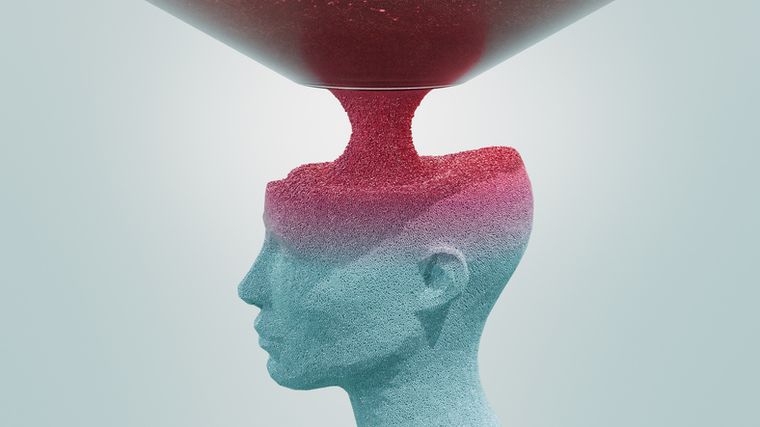16 ½ reasons why you should read The Illusion of Choice by Richard Shotton: Part 2
The Illusion of Choice: 16 1/2 psychological biases that influence what we buy.

The Illusion of Choice will remind you what really matters in research, make your insight communication more effective, and let you raise your prices. How? Keep reading to find out!
9. It’ll remind you what’s important in research #1
In The Illusion of Choice Richard says that “often people who make ads want to impress their peers. And that doing so leads to them using overly sophisticated but not impactful techniques.”
Researchers are guilty of this too. We must always remember that our work’s impact matters more than doing the latest, greatest thing. Even if this means running a simple experiment instead of a complex conjoint.
10. It’ll remind you what’s important in research #2
Richard strongly advocates running experiments as regularly as possible. We must remember that experiments – testing new ideas – is as vital to research as it is behavioural science. The Illusion of Choice shows that experiments needn’t cost lots or take ages to do. Or as Richard refers to them “short, sharp experiments that don’t need large capital costs”. We must remember that as researchers we’re well equipped to test new ideas.
11. It’ll make your insight communication more effective
According to the GRIT Report, only 33% of research buyers are satisfied with how agencies share insight outputs. Luckily for us, The Illusion of Choice is about understanding how to influence people.
This means it gives you many new communication tools to influence clients into acting on your work. These communication tools include how to use wit appropriately, why you should use concrete language and how best to frame key messages.
12. It’ll help you earn more money
Marketing Professor Mark Ritson breaks pricing down into three parts: 1) researching the price 2) setting the price 3) communicating the price. This applies to all pricing. Whether it’s selling to consumers or businesses.
Ritson also says that behavioural science suggests effective ways you can communicate a price. And The Illusion of Choice explains how you can apply biases such as extremeness aversion and fairness to increase what people will pay for products (or research).
All researchers can use these biases. Whether its agency researchers communicating their price to clients. Or clients trying to raise budgets internally.
13. It’ll make your briefs shorter
Throughout The Illusion Choice, Richard shows how the same psychological biases that influenced our behaviour 100 years ago still do so today.
This means if you have a brief which wants to understand how people respond to different marketing tactics, the chances are you’ll be able get an answer if you can find an existing experiment that assessed the biases behind them.
As Bill Bernbach said – focus on the unchanging man. And trim your objectives in the process.
14. It’ll make you think about the small stuff
Behavioural science is about creating a big impact via minor changes. For example, The Illusion of Choice shows you how small changes to font type and size can make your communications more impactful.
As researchers, grabbing and holding participant and stakeholder’s attention is our top priority. But it’s getting harder to do so. Luckily, The Illusion of Choice can help us succeed in our ongoing battle for attention.
15. It’ll make you question why research feels the need to be serious
The Illusion of Choice covers serious topics. Influencing others. Increasing revenue. The human mind. But it does so in a playful way by narrating these topics in the context of a person’s day. It also shows how wit, humour and dressing scruffily can create positive marketing outcomes.
This will get you thinking about how serious your report’s tonality should be. If you need to always to wear that shirt & tie. And why it’s worth trying to make your clients laugh.
16. It’ll make you a better researcher
The Illusion of Choice’s first chapter says the three most important tactics for habit formation is repeat, repeat, repeat. So, to repeat, The Illusion of Choice will make you a better researcher. Why? Because it’ll help you understand what drives human behaviour and show you how to apply behavioural science to you work.
16 ½. Are you ready to be precisely peakended?
The Peak End Rule means you judge an experience based on how you feel at the end of it. And I hope you’re excited by what The Illusion of Choice can do to for you. You can buy your copy here. And learn about Richard’s behavioural science consultancy Astroten here. And for regular behavioural science tweets from Richard follow him @rshotton.
Jack Miles
Editor in Chief at Research WorldJack specialises in quantitative research for international clients across an array of sectors. These studies have led him to work with brands such as Jaguar, Navistar and Volvo. His main research interests are brand research and consumer trends, with a focus on quantitative methods and the use of statistics to derive solid strategic planning for clients.
He has a particular focus on developing creative ad-hoc quantitative methods that use a range of data sources. He can also be found writing papers for a range of well-known publications such as Admap, Huffington Post and Research World.
Outside the office, Jack can be found training in martial arts, in which he holds a 3rd degree black belt in Taekwon-do, and partaking in various endurance sports.


